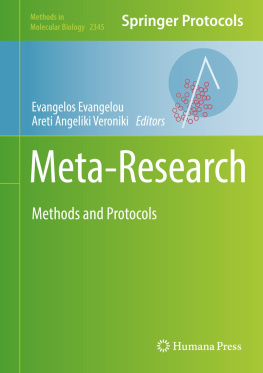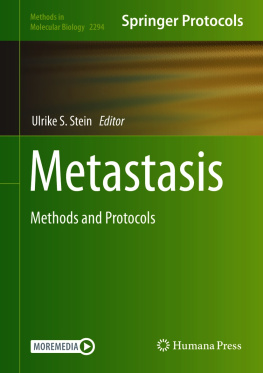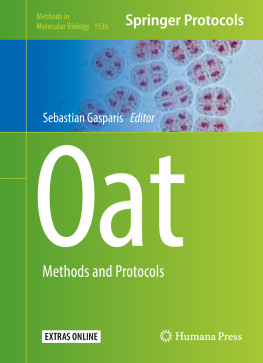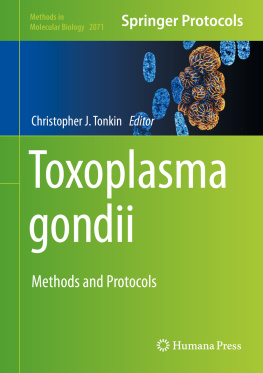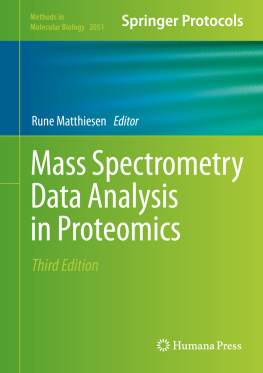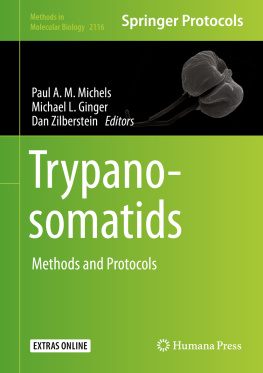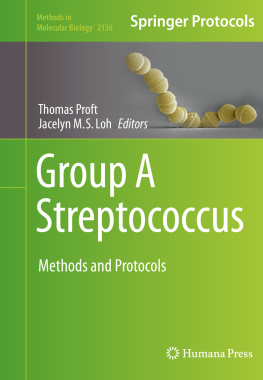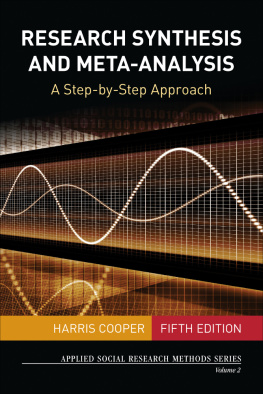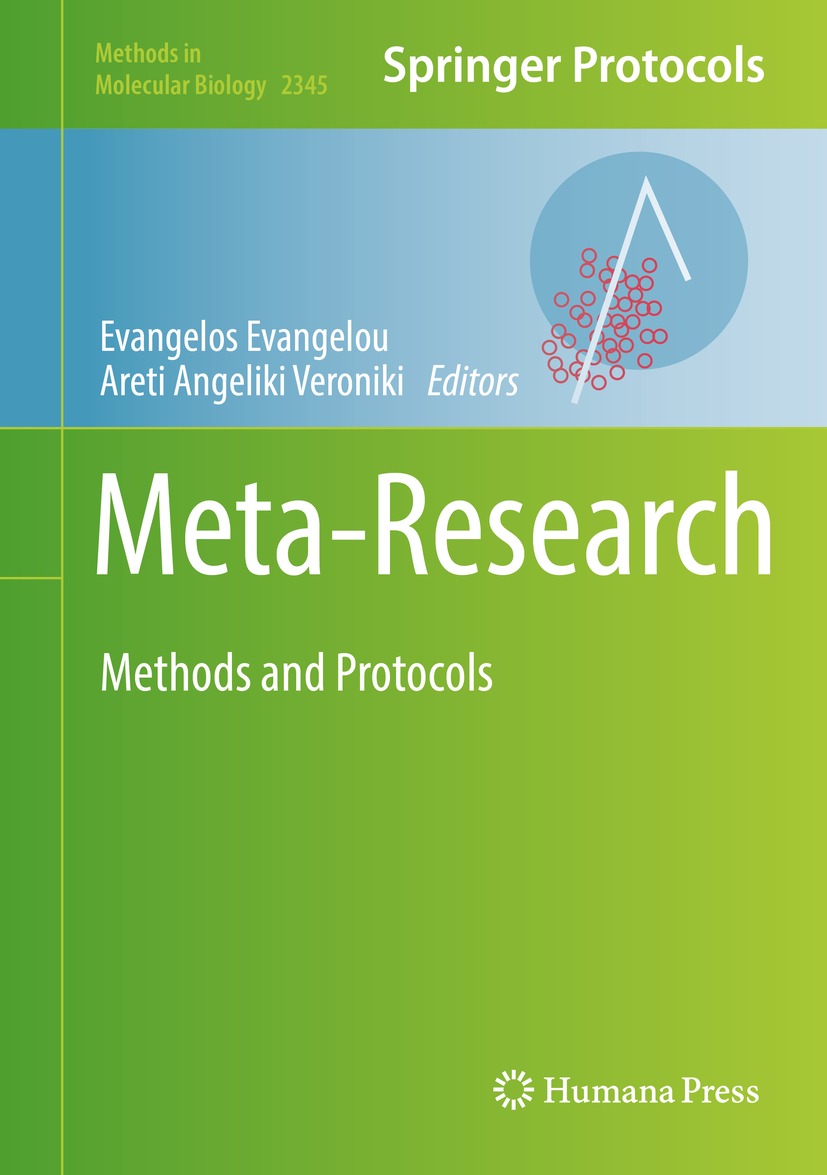Volume 2345
Methods in Molecular Biology
Series Editor
John M. Walker
School of Life and Medical Sciences, University of Hertfordshire, Hatfield, Hertfordshire, UK
For further volumes: http://www.springer.com/series/7651
For over 35 years, biological scientists have come to rely on the research protocols and methodologies in the critically acclaimed Methods in Molecular Biology series. The series was the first to introduce the step-by-step protocols approach that has become the standard in all biomedical protocol publishing. Each protocol is provided in readily-reproducible step-by-step fashion, opening with an introductory overview, a list of the materials and reagents needed to complete the experiment, and followed by a detailed procedure that is supported with a helpful notes section offering tips and tricks of the trade as well as troubleshooting advice. These hallmark features were introduced by series editor Dr. John Walker and constitute the key ingredient in each and every volume of the Methods in Molecular Biology series. Tested and trusted, comprehensive and reliable, all protocols from the series are indexed in PubMed.
Editors
Evangelos Evangelou
Department of Hygiene and Epidemiology, University of Ioannina Medical School, Ioannina, Greece
Department of Epidemiology and Biostatistics, Imperial College London, London, UK
Areti Angeliki Veroniki
Knowledge Translation Program, Li Ka Shing Knowledge Institute, St. Michaels Hospital, Toronto, ON, Canada
Department of Surgery and Cancer, Faculty of Medicine, Institute of Reproductive and Developmental Biology, Imperial College, London, UK
ISSN 1064-3745 e-ISSN 1940-6029
Methods in Molecular Biology
ISBN 978-1-0716-1565-2 e-ISBN 978-1-0716-1566-9
https://doi.org/10.1007/978-1-0716-1566-9
Springer Science+Business Media, LLC, part of Springer Nature 2022
This work is subject to copyright. All rights are reserved by the Publisher, whether the whole or part of the material is concerned, specifically the rights of translation, reprinting, reuse of illustrations, recitation, broadcasting, reproduction on microfilms or in any other physical way, and transmission or information storage and retrieval, electronic adaptation, computer software, or by similar or dissimilar methodology now known or hereafter developed.
The use of general descriptive names, registered names, trademarks, service marks, etc. in this publication does not imply, even in the absence of a specific statement, that such names are exempt from the relevant protective laws and regulations and therefore free for general use.
The publisher, the authors and the editors are safe to assume that the advice and information in this book are believed to be true and accurate at the date of publication. Neither the publisher nor the authors or the editors give a warranty, expressed or implied, with respect to the material contained herein or for any errors or omissions that may have been made. The publisher remains neutral with regard to jurisdictional claims in published maps and institutional affiliations.
This Humana imprint is published by the registered company Springer Science+Business Media, LLC part of Springer Nature.
The registered company address is: 1 New York Plaza, New York, NY 10004, U.S.A.
Preface
As the scientific evidence in biosciences is accumulating exponentially, meta-research provides a meticulous approach to examine different aspects of research itself, including its methods for synthesis, reporting, reproducibility, assessment of biases, and interpretation of the results and their heterogeneity. This exponential increase in scientific publications has also resulted in the emergence of novel methods for synthesizing and interpreting the available evidence in biomedical fields.
This book elegantly covers a wide range of design, analysis, and integration approaches for biomedical data including recent statistical models for a comprehensive and powerful synthesis of scientific evidence. It is a broad overview written at a level that should be accessible to a wide range of related scientists. We also hope that the book will be helpful to graduate students pursuing research in related fields. Experts in the field describe both conventional and novel state-of-the-art methodologies for data synthesis and meta-research.
Chapter describes the challenges in extending standard meta-analytical methods to synthesize multiple diagnostic tests.
We thank sincerely all those who have helped to bring this book together. We are grateful to the coauthors who accepted our invitation and contributed to this book, devoting valuable time and effort.
Areti Angeliki Veroniki
Evangelos Evangelou
Toronto, ON, Canada Ioannina, Greece
Contents
Rebecca L. Morgan and Ivan D. Florez
Gaelen P. Adam , Byron C. Wallace and Thomas A. Trikalinos
Steve Kanters
Dean Langan
Anke Schulz , Christoph Schrmann , Guido Skipka and Ralf Bender
Zachary Bouck , Sharon E. Straus and Andrea C. Tricco
Mark Simmonds , Julian H. Elliott , Anneliese Synnot and Tari Turner
Stefania I. Papatheodorou and Evangelos Evangelou
Lawrence Mbuagbaw and Theresa Aves
Guido Schwarzer and Gerta Rcker
Niki Dimou and Pantelis Bagos
Jennifer Watt and Cinzia Del Giovane
Amalia Karahalios , Joanne E. McKenzie and Ian R. White
Caitlin Daly and Charlene Soobiah
Areti Angeliki Veroniki , Georgios Seitidis , Stavros Nikolakopoulos , Marta Ballester , Jessica Beltran , Monique Heijmans and Dimitris Mavridis
Sarah J. Nevitt and Catrin Tudur Smith
Suzanne C. Freeman
Areti Angeliki Veroniki , Sofia Tsokani , Gerta Rcker , Dimitris Mavridis and Yemisi Takwoingi

